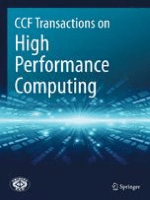
CCF Transactions on High Performance Computing
Scope & Guideline
Catalyzing Innovation in Hardware and Software Systems
Introduction
Aims and Scopes
- High-Performance Computing Architectures:
Research on the design and optimization of hardware architectures that enable high-performance computing, including CPU, GPU, and specialized processors. - Programming Models and Software Development:
Exploration of new programming models, languages, and tools that facilitate the development of software for HPC applications, including parallel and distributed computing paradigms. - Algorithm Development and Optimization:
Focus on innovative algorithms that enhance computational performance, including numerical methods, machine learning algorithms, and optimization techniques. - Heterogeneous Computing Systems:
Studies on the integration of various computing resources, such as CPUs, GPUs, FPGAs, and accelerators, to achieve efficient performance in complex computational tasks. - Benchmarking and Performance Evaluation:
Methodologies for assessing the performance of HPC systems and applications through rigorous benchmarking and analysis. - Applications of HPC in Science and Industry:
Research that highlights the application of high-performance computing in various domains, including computational science, engineering, and data-intensive applications.
Trending and Emerging
- AI and Machine Learning Integration:
Recent works show a significant rise in exploring how AI and machine learning can enhance HPC applications, particularly in optimizing performance and resource management. - Heterogeneous and Specialized Architectures:
There is a growing emphasis on research involving heterogeneous computing systems that combine various processing units, such as CPUs, GPUs, and FPGAs, to maximize performance. - Cloud Computing and Edge Computing:
A trend towards utilizing cloud resources and edge computing frameworks for HPC applications is evident, focusing on scalability, flexibility, and resource optimization. - Sustainability and Energy Efficiency in HPC:
Increasing attention is being paid to developing energy-efficient algorithms and architectures, addressing the environmental impact of high-performance computing. - Advanced Benchmarking Techniques:
Emerging methodologies for benchmarking and performance evaluation, particularly in heterogeneous environments, are gaining traction, highlighting the need for more nuanced performance metrics.
Declining or Waning
- Traditional Parallel Computing Techniques:
There has been a noticeable shift away from traditional parallel computing techniques towards more sophisticated methods involving heterogeneous and specialized computing architectures. - Basic Theoretical Studies:
Research focused solely on theoretical aspects of high-performance computing without practical applications or implementations is becoming less frequent, as the emphasis shifts towards applied and experimental studies. - General-purpose Computing on GPUs:
While GPU computing remains vital, there is a decrease in publications centered on general-purpose applications, with a growing preference for tailored solutions that leverage specific architectures or frameworks.
Similar Journals
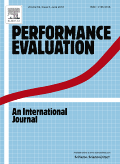
PERFORMANCE EVALUATION
Exploring Innovations in Evaluation MethodologiesPERFORMANCE EVALUATION, published by ELSEVIER, is a prestigious journal that serves as a critical resource for researchers and professionals in the fields of Computer Networks and Communications, Hardware and Architecture, Modeling and Simulation, and Software. With its ISSN 0166-5316 and E-ISSN 1872-745X, this journal is recognized for its contribution to the advancement of performance assessment methodologies and empirical research. Holding a Q3 quartile ranking across multiple categories in 2023, PERFORMANCE EVALUATION is positioned as a valuable platform for disseminating high-quality studies that explore complex performance issues and innovative solutions. Operating from its base in the Netherlands, this journal emphasizes rigorous peer-review standards and enhances its relevance within the academic community by addressing crucial challenges and trends in technology. Stakeholders can access the wealth of knowledge published from 1981 through 2024 by exploring this journal, making it an essential tool for practitioners and scholars aiming to stay at the forefront of computer science research.
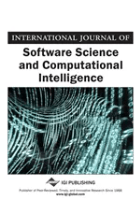
International Journal of Software Science and Computational Intelligence-IJSSCI
Fostering Innovation in Computational IntelligenceInternational Journal of Software Science and Computational Intelligence (IJSSCI) is a prominent academic journal published by IGI Global, dedicated to advancing the fields of software science and computational intelligence. With its ISSN 1942-9045 and E-ISSN 1942-9037, IJSSCI offers a platform for researchers, practitioners, and students to disseminate innovative research findings, theoretical advancements, and practical applications in areas such as algorithm development, machine learning, and software engineering. Although the journal currently does not operate under an open access model, its rigorous peer-review process ensures high-quality publications that contribute significantly to the academic discourse. Based in Hershey, PA, IJSSCI is recognized for its commitment to fostering collaboration among professionals in the technology and computer science fields, making it an essential resource for those looking to stay at the forefront of software science advancements.
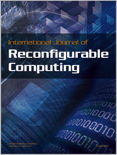
International Journal of Reconfigurable Computing
Unlocking the Potential of Reconfigurable ArchitecturesWelcome to the International Journal of Reconfigurable Computing, a leading open-access platform dedicated to the exploration of innovative methodologies and applications in the field of reconfigurable computing. Published by HINDAWI LTD, this journal has been fostering scholarly communication since its inception in 2008. With an ISSN of 1687-7195 and an E-ISSN of 1687-7209, it offers researchers valuable access to the latest advancements and trending research in hardware and architecture, evidenced by its quarterly ranking in the Q4 category for 2023. Researchers, professionals, and students alike will find this journal an invaluable resource for staying updated in a rapidly evolving domain, notwithstanding its current Scopus ranking of 154 out of 177 within its category, reflecting a burgeoning opportunity for growth and engagement in this niche. Submitting their research to the International Journal of Reconfigurable Computing not only connects authors with a global audience but also contributes to the collective advancement of knowledge in this critical area. Explore the vast potential of reconfigurable systems and become part of a community dedicated to pushing the boundaries of computing technology.

JOURNAL OF SUPERCOMPUTING
Illuminating the Future of Computer ScienceJOURNAL OF SUPERCOMPUTING is a premier academic journal published by SPRINGER, situated in the Netherlands, that has made significant contributions to the fields of computer science, particularly in hardware and architecture, information systems, software, and theoretical computer science. With a robust publication history spanning from 1987 to 2024, this journal has cultivated a strong reputation, evidenced by its Category Quartiles ranking in the Q2 category across multiple relevant domains in 2023. The journal's Scopus rankings further underscore its influence, boasting a 78th percentile in mathematics and theoretical computer science, revealing the high quality of research disseminated within its pages. As vital discourse unfolds in the realm of supercomputing—where innovative techniques and technologies rapidly evolve—this journal serves as a crucial platform for researchers, professionals, and students to explore cutting-edge studies and build upon the foundations of knowledge in this dynamic field.
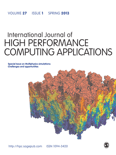
INTERNATIONAL JOURNAL OF HIGH PERFORMANCE COMPUTING APPLICATIONS
Fostering Global Collaboration in Advanced Computing ResearchThe INTERNATIONAL JOURNAL OF HIGH PERFORMANCE COMPUTING APPLICATIONS, published by SAGE PUBLICATIONS LTD, is a leading academic journal dedicated to the advancement of high-performance computing in various domains, including hardware, software, and theoretical frameworks. With a strong commitment to disseminating innovative research since its inception in 1987, the journal plays a pivotal role in bridging the gap between theoretical advancements and practical applications in computing. Featuring an impressive impact across its categories—ranked Q2 in Hardware and Architecture, Software, and Theoretical Computer Science—this journal appeals to a diverse audience of researchers and professionals seeking to explore the latest developments and applications in high-performance computing. The journal is accessible via various open access options, ensuring that cutting-edge research is available to a wide readership, fostering collaboration and knowledge-sharing within the global computing community. Scholars interested in pushing the boundaries of technology and its applications will find this journal an invaluable resource as it continues to evolve towards its projected convergence years, extending its influence through 2024 and beyond.
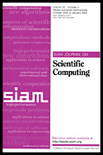
SIAM JOURNAL ON SCIENTIFIC COMPUTING
Unleashing the Power of Algorithms for Scientific DiscoverySIAM Journal on Scientific Computing is a premier journal published by SIAM Publications, focusing on the interdisciplinary domain of scientific computing. With a significant standing in the academic community, this journal boasts a 2023 Q1 ranking in both Applied Mathematics and Computational Mathematics, positioning it among the top-tier publications in these fields. The journal aims to disseminate high-quality research that applies computational methods to solve scientific and engineering problems, fostering advancements in numerical analysis, algorithms, and software development. Researchers and professionals can greatly benefit from the journal's rigorous peer-review process and its reputation for publishing cutting-edge studies. Though it is not an open-access journal, subscribing institutions and individual subscribers gain access to a wealth of knowledge tailored for those seeking to enhance their expertise in scientific computation. With its established history since 1996 and continuing to publish until 2024, the SIAM Journal on Scientific Computing remains an essential resource for students, researchers, and professionals dedicated to pushing the boundaries of this dynamic field.

Applied Computing and Informatics
Exploring the Frontiers of Computer Science ApplicationsApplied Computing and Informatics, published by Emerald Group Publishing Ltd, is a prominent open-access journal that has been serving the academic community since 2011. With a focus on advancing the fields of Computer Science Applications, Information Systems, and Software, this journal has established itself as a noteworthy publication, currently ranking in the Q3 quartile for each of its categories in 2023. The journal is particularly recognized for its commitment to disseminating high-quality research, as evidenced by its impressive Scopus rankings—placing it in the 92nd percentile for Computer Science Applications and the 91st percentile for both Information Systems and Software. Based in Saudi Arabia, it adopts a global perspective, inviting contributions from researchers worldwide. With its open-access policy, Applied Computing and Informatics ensures that cutting-edge research is accessible to a broad audience, fostering collaboration and innovation within the computing and informatics disciplines. This journal is an essential resource for academics, professionals, and students seeking to keep abreast of the latest trends and developments in their field.

Communications on Applied Mathematics and Computation
Fostering Excellence in Applied Mathematics and ComputationCommunications on Applied Mathematics and Computation is a distinguished journal published by SpringerNature, dedicated to advancing the fields of Applied Mathematics and Computational Mathematics. With its ISSN 2096-6385 and E-ISSN 2661-8893, the journal has established itself as a critical platform for researchers seeking to disseminate their findings and engage with contemporary mathematical challenges. Recognized in the Q2 quartile of both Applied Mathematics and Computational Mathematics categories for 2023, it ranks impressively within its field, holding the 278th position in a pool of 635 journals for Applied Mathematics and the 89th out of 189 for Computational Mathematics, indicative of its scholarly impact. The journal facilitates open access to a plethora of pioneering research, promoting collaboration and innovation in a global academic community. With a commitment to high-quality publications from 2019 through 2024, Communications on Applied Mathematics and Computation serves as an essential resource for scholars and practitioners aiming to bridge theory and practical applications in mathematics.
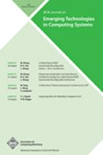
ACM Journal on Emerging Technologies in Computing Systems
Catalyzing Innovation in Electrical and Electronic EngineeringACM Journal on Emerging Technologies in Computing Systems, published by the Association for Computing Machinery, stands as a premier platform dedicated to the exploration and discussion of avant-garde advancements in computing systems. With an ISSN of 1550-4832 and an E-ISSN of 1550-4840, this journal has achieved notable recognition, holding a 2023 Q2 ranking in key fields such as Electrical and Electronic Engineering, Hardware and Architecture, Nanoscience and Nanotechnology, and Software. Spanning from 2005 to 2024, it provides a critical forum for researchers, professionals, and students alike to disseminate innovative research and applications that shape the future of technology. Although currently not open access, the journal's commitment to high-quality, peer-reviewed content ensures its relevance and impact, as reflected in its competitive Scopus ranks across various disciplines. Engage with groundbreaking research that propels the frontiers of computational systems in this dynamic academic journal.
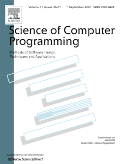
SCIENCE OF COMPUTER PROGRAMMING
Innovating the Future of Computational TheoryScience of Computer Programming, published by Elsevier, is a leading journal dedicated to advancing knowledge in the fields of computer programming, computational theory, and software development. With a focus on interdisciplinary research that spans computational methodologies, information systems, and simulation modeling, this journal plays a vital role in disseminating innovative findings and fostering collaboration among experts in these dynamic areas. With a respectable impact factor and ranked in various Scopus Categories such as computational theory (Q3) and information systems (Q2), it provides a platform for high-quality scholarly articles that push the boundaries of programming science. Although currently not open access, the journal offers invaluable insights for researchers, professionals, and students alike, ensuring they are equipped with the latest advancements and methodologies to thrive in an ever-evolving technological landscape. The journal covers research from its convergence starting in 1981 and continues to welcome groundbreaking contributions as it looks forward to an exciting future through 2025 and beyond.